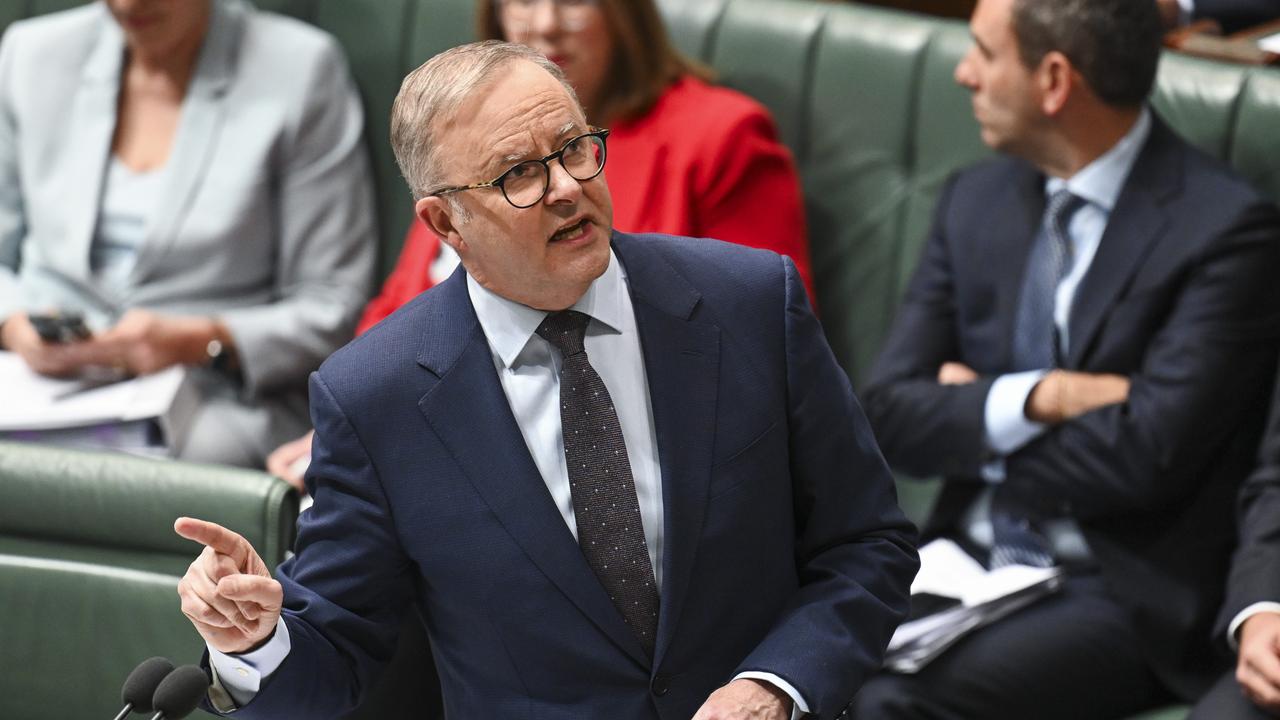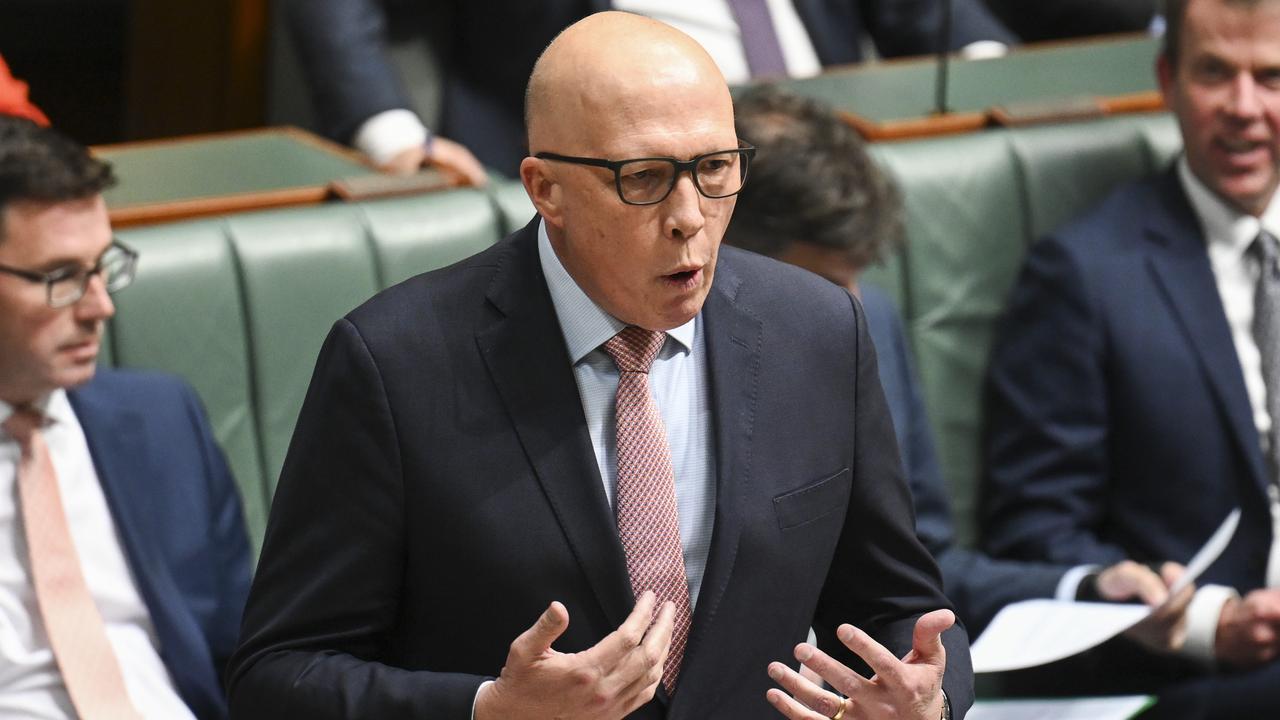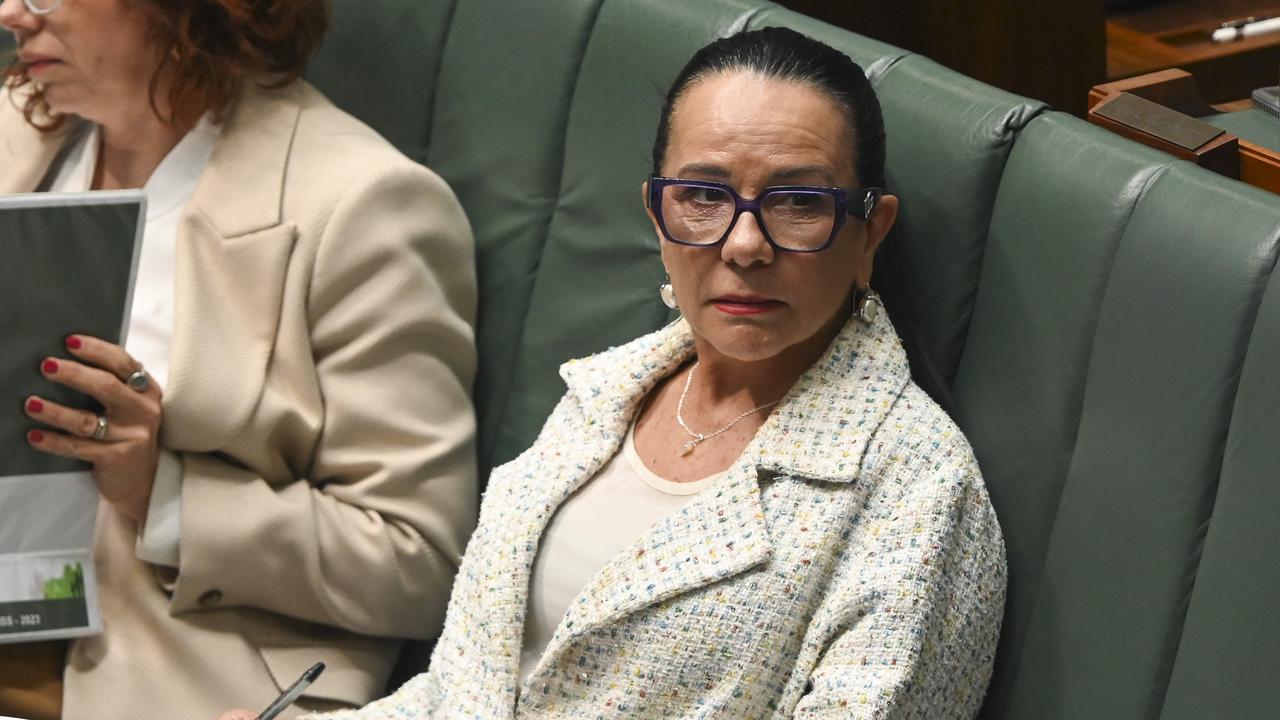Uluru statement: What is Makarrata in the Voice to parliament debate?
The political week was dominated by questions about “treaty” and “Makarrata” – but what does that have to do with the Voice to parliament?
The first sitting week after the winter break was dominated by intense questioning about the Voice to parliament and if a treaty process would follow.
As the referendum date draws nearer – expected to be held sometime in October or November – Prime Minister Anthony Albanese will use this weekend’s Garma Festival to call for Australians to not be distracted by the No campaign’s scare tactics and engage in meaningful conversations to get the vote over the line.
The festival wraps up a week of questioning by the opposition about what the government’s commitment to the Uluru Statement of the Heart “in full” means, having pointed out that it calls for a Makarrata commission, with $900,000 of the $5.8 million set aside for Makaratta in last October’s budget already spent.
The government would not be drawn on answering questions about whether a Voice to parliament would give way to a treaty in the form of costly reparations and what the money already spent had been used for.

Commitment ‘in full’
Labor took a promise to last year’s election that if it won, it would implement the Uluru Statement from the Heart in full.
When Mr Albanese won the election last May, the first words he spoke as prime minister-elect confirmed a commitment to the 2017 Uluru Statement of the Heart: “I begin by acknowledging the traditional owners of the land on which we meet. I pay my respects to their elders past, present and emerging. And on behalf of the Australian Labor Party, I commit to the Uluru Statement from the Heart in full.”
A constitutionally enshrined Voice to parliament is the first key demand of the Uluru Statement from the Heart, a document for constitutional reform endorsed by more than 250 Aboriginal and Torres Strait Islander delegates from across the country.
Months later, at last year’s Garma Festival, Mr Albanese announced the draft question he intended to ask all Australians at a referendum during his term as prime minister.
The second request is for a Makaratta commission “to supervise a process of agreement-making between governments and First Nations and truth-telling about our history”.
Put simply, the three basic premises of Uluru are voice, treaty and truth.

What is Makarrata?
Ahead of Labor’s national conference later this month, draft changes to the party’s platform say: “Labor will take steps to implement all three elements of the Uluru Statement from the Heart in this term of government.
“Labor supports all elements of the Uluru Statement from the Heart, including a constitutionally enshrined Voice to parliament, a Makarrata commission for agreement-making and a national process of truth-telling.”
“Makarrata”, a complex Yolngu word, has come to be synonymous with treaty or agreement-making.
This week, Indigenous Australians Minister Linda Burney quoted the Uluru Statement, which further defines Makarrata as “the culmination of our agenda: the coming together after a struggle. It captures our aspirations for a fair and truthful relationship with the people of Australia, and a better future for our children based on justice and self-determination”.
According to the government’s own resources, a successful Voice would pave the way for the government to set up a Makarrata commission, which would be tasked with seeking “agreements” between Aboriginal and Torres Strait Islander peoples and the federal government.
The government’s quick guide to the Uluru Statement makes clear that establishing such a commission would most likely require legislation.
Ms Burney and Mr Albanese both this week said the government would not seek to establish the commission in this term of government.

What is a treaty?
Opposition Leader Peter Dutton on Wednesday took aim at Mr Albanese, referring to an interview the Prime Minister had done with ABC Radio in which he was asked seven times whether he supported a treaty.
“And seven times (he) refused to give a direct answer – when will we hear a straight word from this Prime Minister?” Mr Dutton asked.
Treaties are a binding agreement between two or more parties, setting out the terms of engagement and obligations of all sides to maintain the agreement.
Around the world, New Zealand, Canada, Norway, Sweden, Finland, Japan, Greenland and the US have negotiated treaties with their Indigenous peoples over the centuries – but in many cases they’ve fallen apart.
If done right, treaties could allow First Nations people to run their own affairs.
States and territories have been engaged in their own treaty-making process with First Nations people, but the Uluru Statement calls for a national one.
Victoria is closer than any other jurisdiction to implementing its own treaty, with formal negotiations to get under way later this year.
A Makarrata commission would also oversee a truth-telling process, with state and territory-based processes already under way in several communities.

What’s all the outrage?
The opposition has been grilling the government to come clean with its treaty plans.
The government has accused the opposition – and the broader No campaign – of playing scare tactics to distract Australians from the matter at hand – the Voice to parliament.
Nothing in the Voice to parliament makes reference to Makaratta, treaty or truth, but it is the government’s wholehearted commitment to the Uluru Statement “in full” that the opposition has latched on to.
Deputy Opposition Leader Sussan Ley on Thursday said the government needed to explain to Australians what a Makaratta commission was and why nearly $6mn had been set aside for it in last year’s budget before they headed to the polls.
“Unless Australians get the explanation they deserve, they can’t actually sign on to this,” she told ABC Radio on Thursday.
“The Prime Minister comes back to those things, but he doesn't actually explain what he means by treaty, truth-telling, Makarrata.”
In the last question time of the week on Thursday, Ms Ley pushed Ms Burney to give Australians details over whether she supported treaty with “annual compensation paid by the Commonwealth”.
In response, Ms Burney said the government's priority was “constitutional recognition through a Voice”, and “progress on Makarrata will not occur until after the referendum”.
Shadow treasurer Angus Taylor took a different approach when he asked Treasurer Jim Chalmers what the $900,000 already spent of the $5.8m fund had been used for.
Dr Chalmers said the government was taking its role seriously in “seeking and delivering better outcomes for First Nations people”.
“This referendum is not about Makarrata, it’s about a Voice to parliament, about recognition and listening,” Dr Chalmers said.



